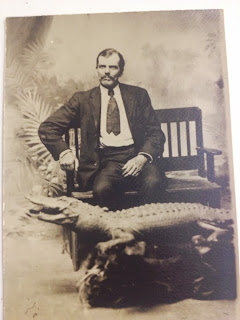By Martha G. Gujda
Eighteen Sixty-one was the year the Civil War began and Military forces were everywhere in Montevallo Township, Missouri. The State of Missouri was very divided in its loyalties. Many people who settled there came from northern states and sided with the Union. However, both Conde and his wife Margaret’s families had come from Southern States and their sympathy was with the confederacy. Conde made his decision to join the Confederate Army. Both Conde and Jesse N. Bellew, Margaret’s brother, enlisted in Col. Sidney D. Jackman’s Missouri Cavalry, and they were assigned to Company A.
Conde did not want to leave his wife and child in Missouri as it was a very dangerous place to be. And so, before reporting to the company to which he was assigned, Conde took Margaret and his young son, James Thomas south to Independence County, Arkansas to live with his Aunt Susan, who had married Col. Morgan Magness. Aunt Susan Dunnigan was the sister of Matilda, Conde’s mother. The Magness family lived on a large plantation on the White River near Magness Arkansas. When Conde was sure of the safety of Margaret and James Thomas, he returned to Missouri and joined Col Jackman and Company A.
During the Civil War, “every acre of ground in Montevallo Township was the scene of some incident worthy of record. Every crossroad was the locality of a skirmish; every school house and prairie field was the mustering place or a drill ground. Someone kept count and at the close of the war it was reported that no fewer than 36 men had been killed in the vicinity of old Montevallo” (The History of Vernon Co. MO)
Wile Margaret was living with Conde’s Aunt Susan in Arkansas, she would meet Conde from time to time. They had a meeting place beside the White River, and when it was safe they would rendezvous. On one of these occasions, Margaret conceived her third daughter, who was born on the 3rd of Dec. 1864 and was named Missouri Cassandra Magness Dunagan. Missouri was named for the entire occasion. However, she was called Zuda. How she got this nickname remains a mystery.
Conde served as a private under Col. Jackman. His military service record did not list the battles he was in. We do know however, that near the end of the war on the 1st day of May, 1865, Conde was captured as was Jesse N. Bellew, his brother-in-law. They were sent to a prison camp in Arkansas together with the Confederate Army of Brigadier Gen. M. Jeff. Thompson CSA. General Thompson surrendered to Major Gen. G. M. Dodge, USA. Conde was released from Jacksonport, Arkansas on the 5th of June 1865 so he was only a prisoner for about one month. On Conde’s “muster and descriptive roll” he is described as: Age 37 yrs. Eyes-blue, Hair-black, Complexion-fair, Height 6 feet 0 inches. Where born—Tennessee, Remarks-none.”
At the end of the Civil War, Conde went to the Magness Plantation in Independence County, Arkansas and got his wife, son, and new-born daughter and returned to Vernon Co. Missouri. There was still much division among the people about the Civil War. Any confederate sympathizer or person who had served with the Confederacy was disenfranchised and generally discriminated against. In fact, it was not until the 1872 general election that anyone who had been in the Confederate Army could vote without taking a test of oath or a proof of loyalty to the Union. In the general election of 1870, B. Gratz Brown, a liberal Republican was elected Governor of Missouri. Ex-confederates were not allowed to vote in this election. In the year 1872 Conde S. Dunnagan filed to run for the office of the House of Representatives of the State Government. “The principal ground on which he based his appeal for votes was on the promise that if elected he would go to Jefferson City with a wagon and ox team, take his provisions and bring back his salary and spend it at home.” (History of Vernon Co. MO. P. 627) Conde was an honest, no nonsense man. The area was going through a post war recession and Conde wanted to “prop-up” the economy. He lost the election to H.P. Gray, the Democratic front-runner.
Later that same year, Conde sold his land in Vernon Co. MO and moved his family to Tarrant Co. Texas, where he stayed and became a Teamster. He hauled supplies into Indian Territory. While there he sighted his land where he eventually would live. When the “Run” of 1889 was allowed by the United States Government, Conde made the run and obtained his land in Pontitoc County Indian Territory which became Oklahoma. Conde began to farm the land he obtained in the “Run of 1889”, but he had great difficulty with it. You see, this black stuff kept coming up out of the ground and it was next to impossible to raise a good crop there. He traded the land for another more fertile 160 acres and raised cattle, and corn. Today there are oil wells on the land that Conde traded away. He lived there in Oklahoma the rest of his life and in 1913 died at the age of 85 years.
Conde Sully Dunagan was born 28 Oct 1828 in TN to Samuel Dunagan and Matilda Dunagan. Matilda's father was James Dunnigan born 1770 which meant that Matilda and Samuel were probably cousins.









